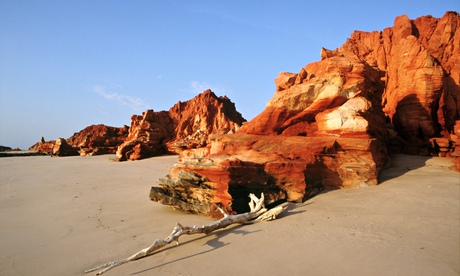
I found Tim Winton's book, The Turning, in a small hotel in Italy and it became my siesta-time reading for the next few days. Its 17 short chapters interweave the lives of some of the inhabitants of a small coastal fishing town in Western Australia.
It is not always a comforting book to read but the opening chapter dropped me straight back into my teenage son's surfing world. The language of this first story is vivid surfing vernacular, which Winton knows well, since he grew up with it, and I did wonder how the first owner of this book (clearly bought in an Italian bookshop) would have coped with it if they had never heard it before. The narrator and his mate, Biggie, are in that post school-leaving limbo, itching to get on with life but uncertain of what they want. They work a "crappy Saturday job" at the local meat works where they pack bloody meat into boxes for "cray bait", and they are saving up for a V8 Sandman with a "filthy great mattress in the back": a legendary "chick-magnet".
Winton's feat of ventriloquism in this story is masterful as the narrator looks back on the start of his unlikely friendship with Biggie. He describes him in typical teenage mates' language as loyal but "not the brightest crayon in the box", with a face "only a mother could love" and a pear-shaped body ("but you'd be a brave bugger calling him barge-arse"). He confesses, too, that he "white-anted" Biggie into "shooting through" and heading north in a clapped-out Kombie van which they bought on impulse from a hippy. The girl hitch-hiker they pick up is "thick as a box of hammers" but Biggie falls for her and she for him. The van conks out, the friendships falter and the story ends abruptly with Biggie dead in a mining accident and the narrator grown up with a family of his own.
Other stories in the book span the years from the 1970s to the present and, since Angelus is a small town, characters from one story often reappear later in others. They are not always easy to identify, but small details in the stories bring their lives up-to-date and allow for some continuity. People work in mundane jobs, have family bonfires on the beach under the huge Australian sky, go cray-fishing, drink, beat up their wives, and follow the "footie" (AFL) obsessively.
A woman who cleans houses is accused of stealing some valuable earrings. Her son, helping her, finds them in the dust under a bed. The dilemma is what to do next. A young man seeks out his father at a remote, deserted mining settlement, learns the reasons for his abandoning the family years before, and sees the trust that he has earned amongst the few down-and-out miners still living in the area. A young policeman, temporarily lost overnight in the bush with a novice female reporter whilst trying to rescue a fallen climber contemplates the possible consequences of this and the hints of corruption he has experienced.
These are ordinary people whose lives are not what they want them to be. There is violence, abuse, police corruption, addiction, all so vividly evoked in Winton's spare prose that my first impulse when I finished the book was to bury it in a garbage bin so that other readers, possibly Italian, did not come to think all small Australian towns were like this. Winton's skill, however, is to also capture moments of sheer beauty. The danger and excitement of cray-fishing in a small boat, the thrill of surfing a wave, and the importance of family. And the vast Australian land, the sun and the sea are ever present.
In the final story, Vic, met in an earlier story as the jealously-envied brother of the abusive wife-beater Max, goes surfing with his brother. He endures Max's bitter, venomous scorn when the first wave he catches dumps him and almost drowns him, but when Max is attacked by a shark he chooses to risk his own life to get him ashore. Winton captures (effortlessly it seems) the pull and power of the waters, the excitement and danger of catching big waves which break over rocks, and the shock of the unexpected attack.
Winton ends this book full of turnings and choices with an ambiguous expression of family love: Vic, struggling through the surf, "held fast to his brother … for as long as he could and longer than he should have".

